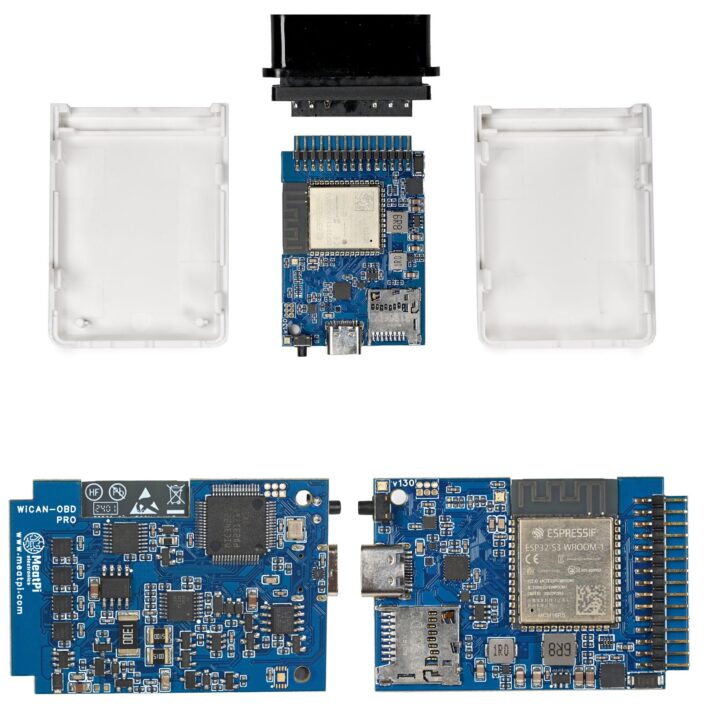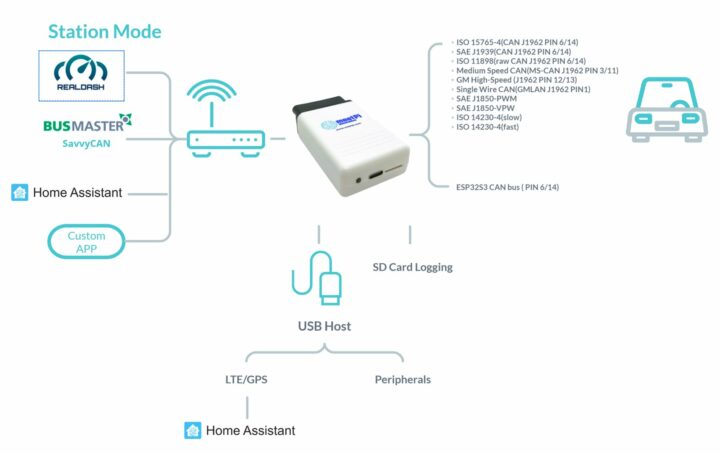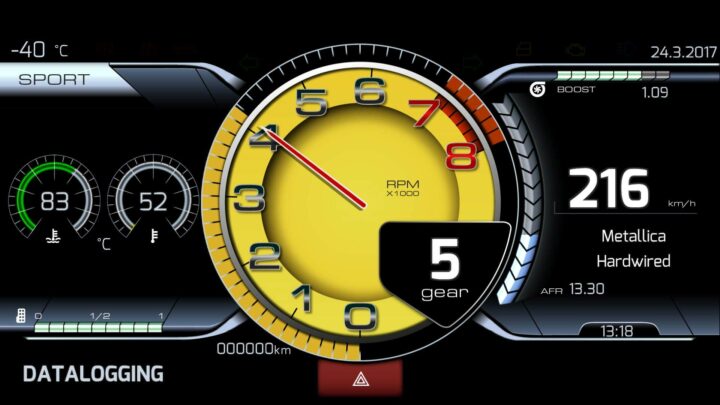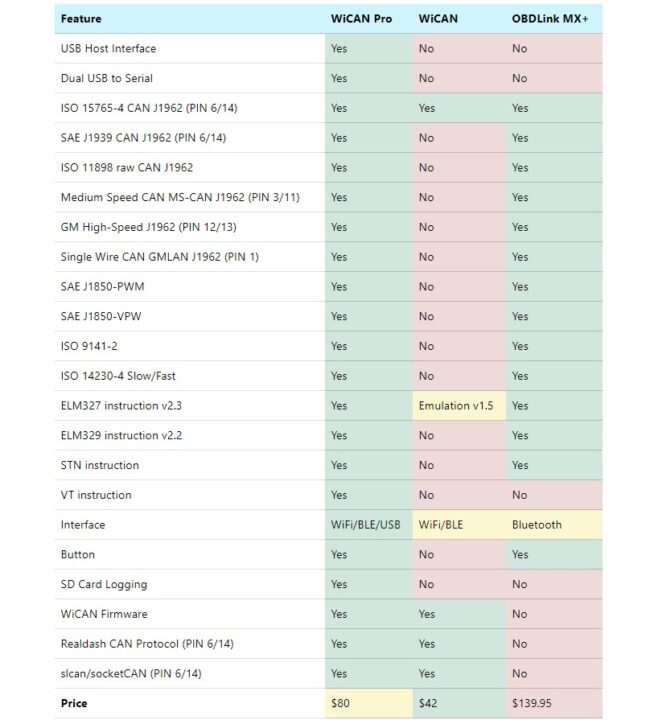MeatPi Electronics introduced the WiCAN Pro, an ESP32-S3-based OBD scanner, and the successor to WiCAN-OBD. Equipped with an OBD-II interface IC, it provides full support for all legislated OBD-II protocols. It offers compatibility with multiple CAN Bus protocols, including three standard CAN Bus and single-wire CAN Bus.
The previous generation WiCAN module came in an OBD or USB-based version. The WiCAN Pro only has an OBD interface, but another significant difference from the previous product is that it features a USB host port. This port can power USB devices up to 1.5 amps at 5 volts and enables capabilities like adding GPS or cellular-based radios, like with meatPi’s ESPNetLink add-on.
WiCAN Pro specifications:
- Wireless Module – ESP32-S3-WROOM-1-N16R8
- SoC – Espressif Systems ESP32-S3R8 dual-core Tensilica LX7 @ up to 240 MHz with vector instructions for AI acceleration, 512KB RAM, 8MB PSRAM
- Storage – 16 MB flash
- Wireless – 2.4 GHz WiFi 4 and Bluetooth
- PCB antenna
- USB – USB Type-C female connector for flashing ESP32 and optional peripherals such as LTE or GPS
- Supports all OBD-II protocols with a dedicated chip
- ISO 15765-4 CAN J1962
- SAE J1939 CAN J1962
- ISO 11898 raw CAN J1962
- Medium Speed CAN MS-CAN J1962
- GM high-speed J1962
- Single Wire CAN GMLAN J1962
- SAE J1850-PWM
- SAE J1850-VPW
- ISO 9141-2
- ISO 14230-4 slow/fast
- Compatible with multiple instruction sets
- ELM327 instruction v2.3
- ELM329 instruction v2.2
- STN instruction
- VT instruction
- RTC for accurate timekeeping
- MicroSD card logging
- Multi-function push button
The WiCAN Pro plugs into the vehicle’s OBD port and is powered by the vehicle’s battery. The voltage range is 6.5V to 18V, consuming about 35mA during operation and 2.8mA in sleep mode.

The device includes dual UARTs, one dedicated to flashing and debugging the ESP32-S3 and the other configurable for sending commands to the OBD chip, providing flexibility for developers working on custom automotive applications. According to the product page, WiCAN Pro can be integrated with Home Assistant and other IoT applications without requiring external apps. This feature enables users to incorporate vehicle data into a smart home ecosystem, allowing for automated vehicle diagnostics and monitoring.

The ESP32-S3-based OBD scanner WiCAN Pro runs on the versatile WiCAN firmware, which is already available and runs on an ESP32. This firmware can send MQTT messages about the vehicle’s health, integrate with Home Assistant, or drive a RealDash display with real-time information. Moreover, this open-source device is compatible with a range of established OBD diagnostic apps including Car Scanner, Torque Lite or Pro, OBD Auto Doctor, BimmerCode, and OBD Fusion.

The company also offers a feature comparison between the WiCAN Pro, WiCAN, and the OBDLink MX+.
The WiCAN Pro campaign launched on Crowd Supply and has raised $6,000 so far with 35 days remaining. The product is priced at $80, with an additional $8 for U.S. shipping and $18 for international shipping. Deliveries are expected to start by mid-February 2025.

Sayantan Nandy, an electronics engineer with over four years of hands-on experience in PCB design, circuit development and power electronics, is proficient in EAGLE CAD, Ki-Cad, and Altium. He has a proven track record of delivering efficient and effective systems. His expertise extends from R&D, and prototyping to production support, making him a valuable asset to any engineering team.
Support CNX Software! Donate via cryptocurrencies, become a Patron on Patreon, or purchase goods on Amazon or Aliexpress






